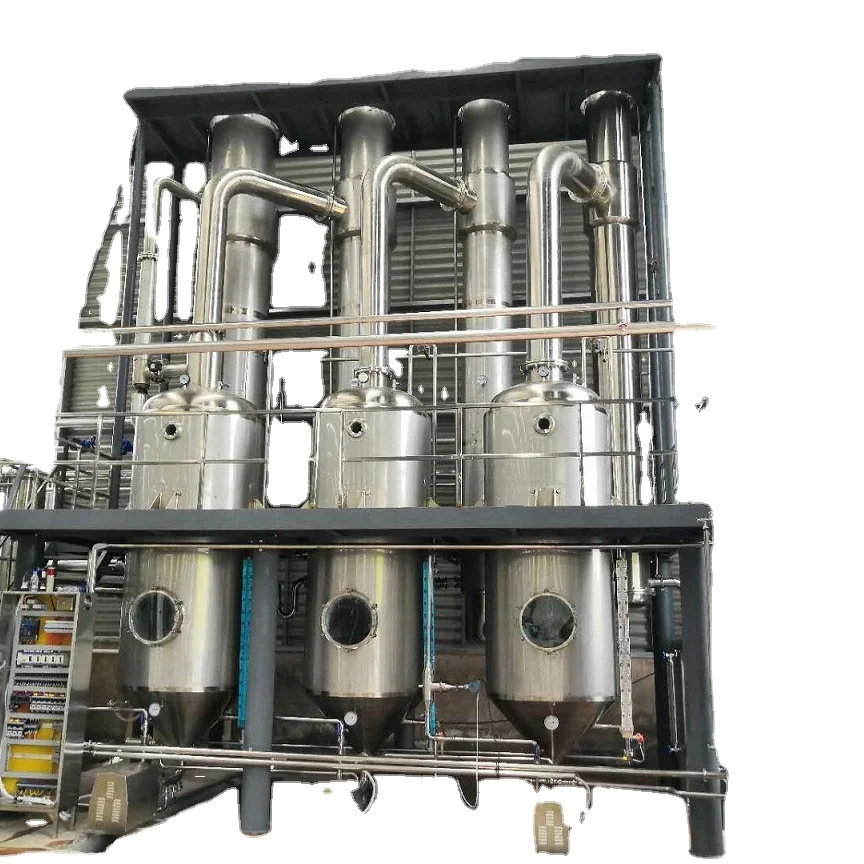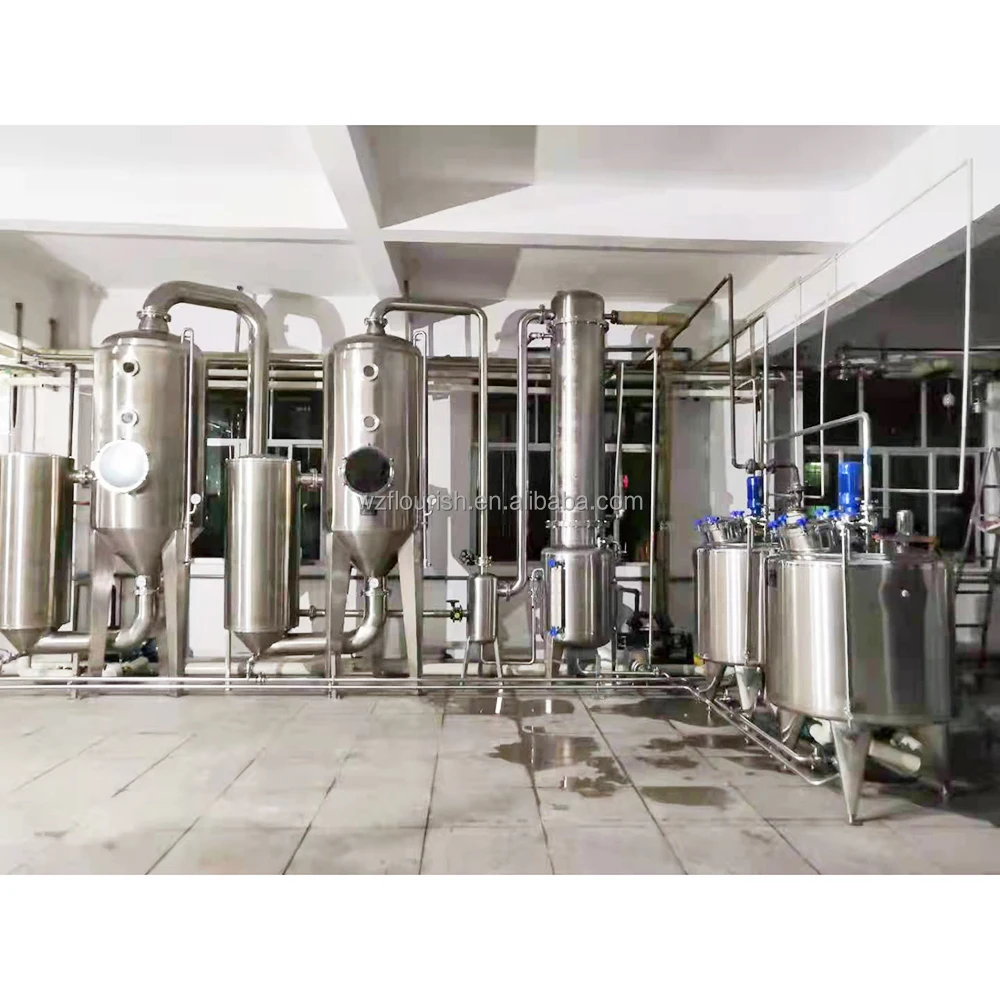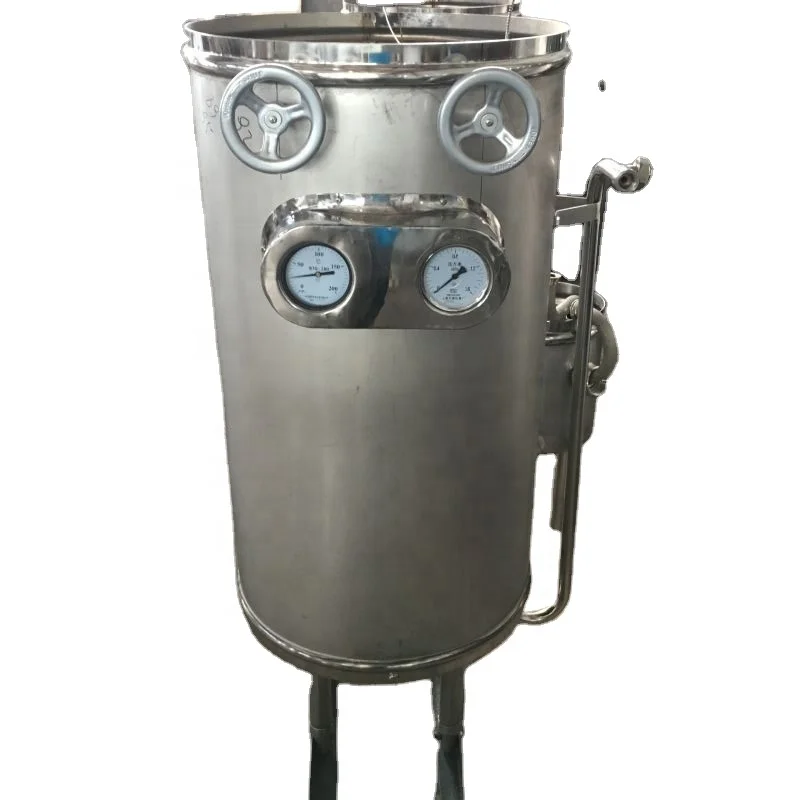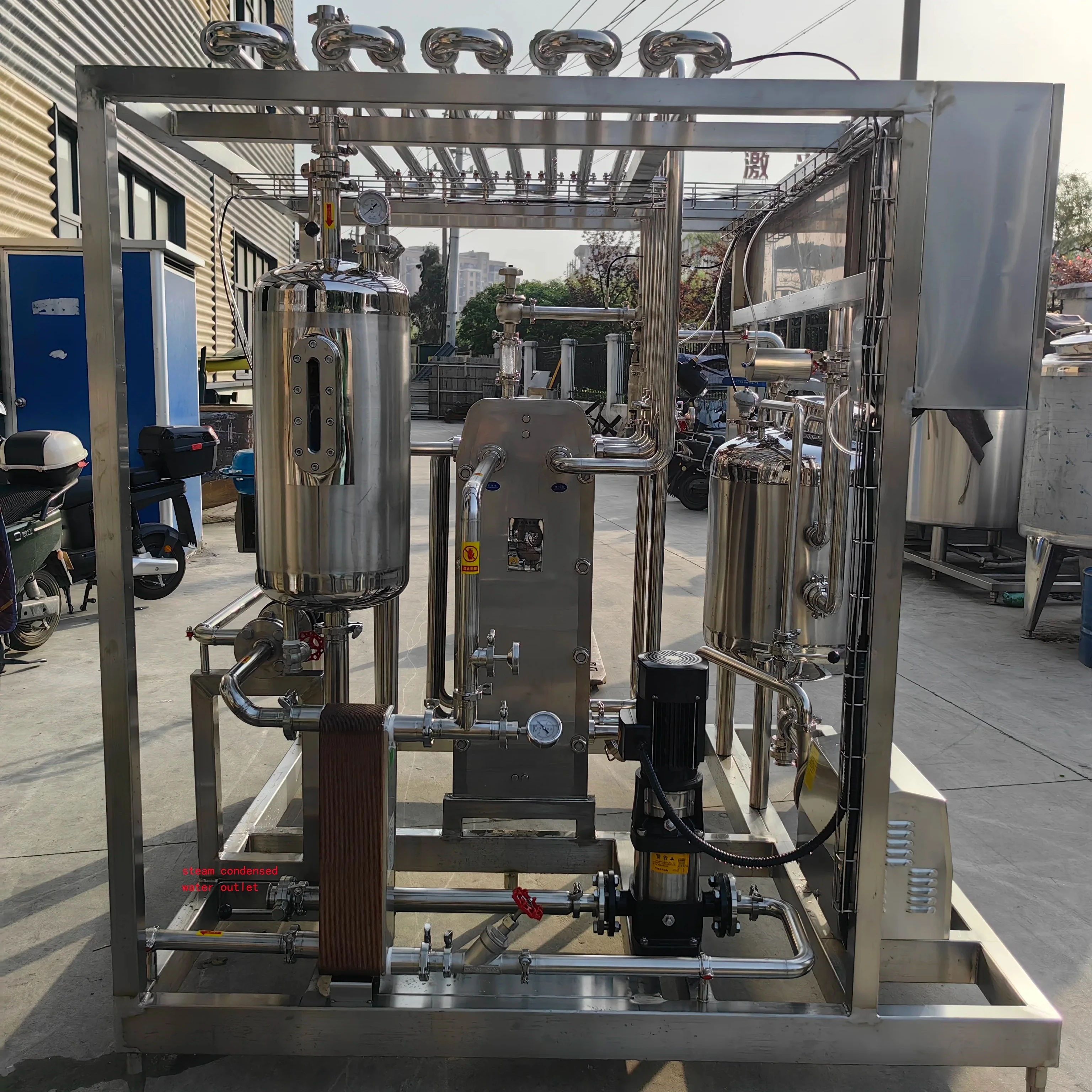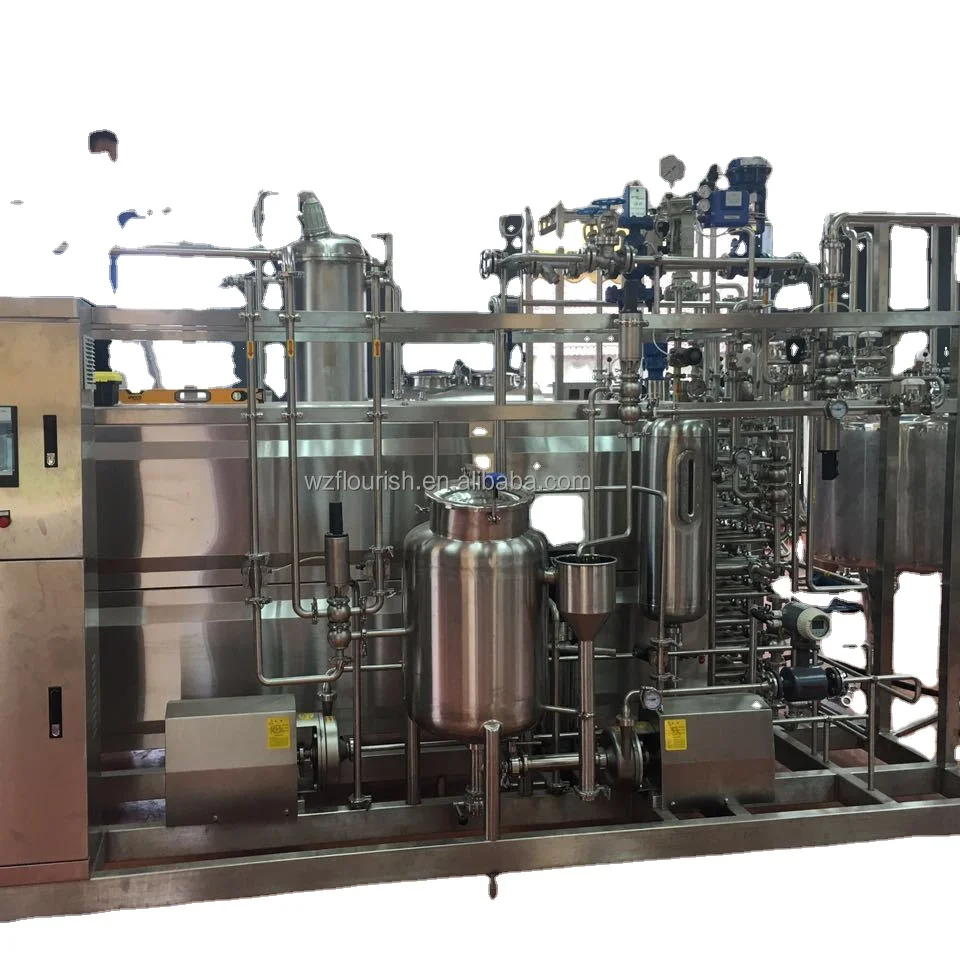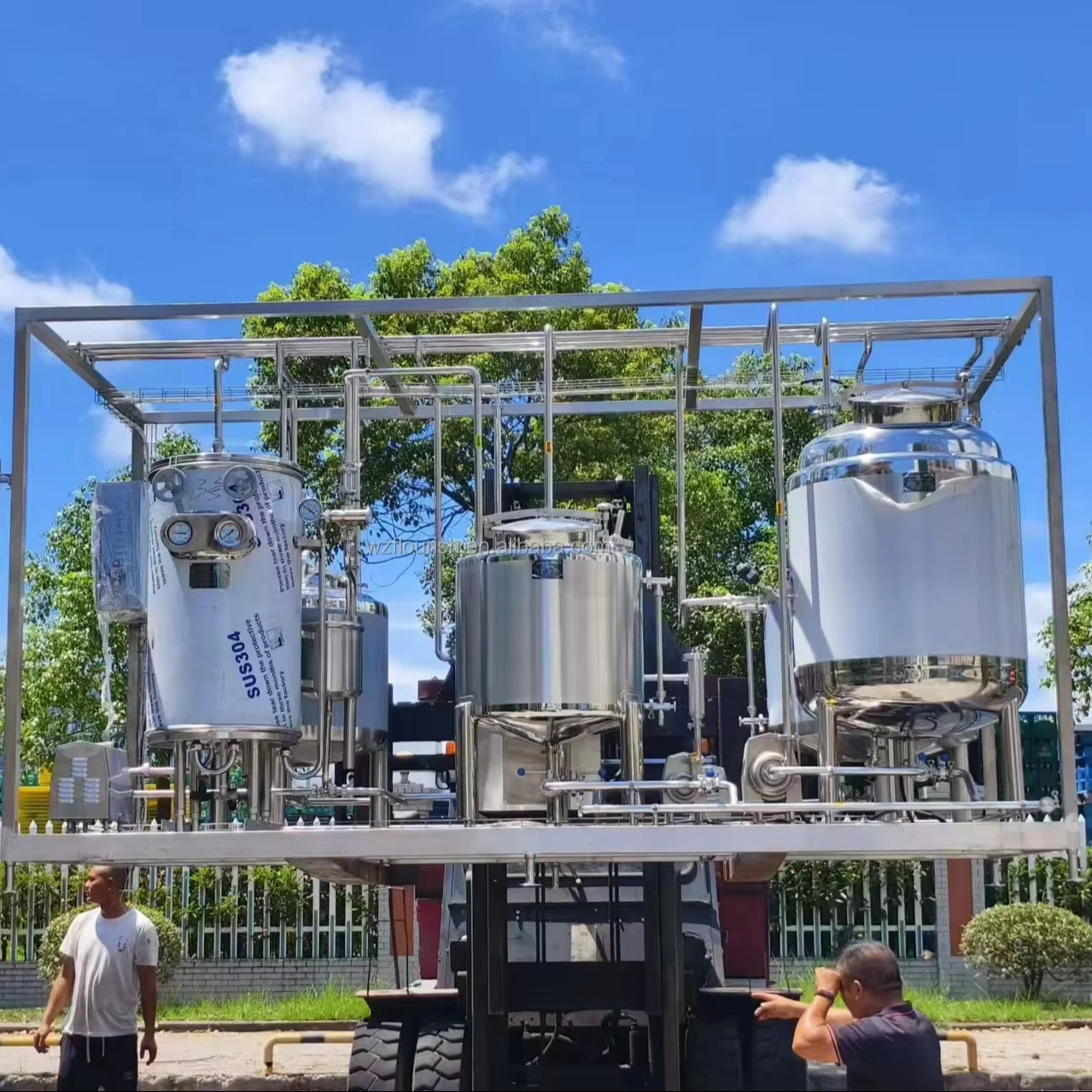ABOUT
Wenzhou Vince Machinery Science Co., Ltd. was established in early 1980s. Our company covers an area of 6500 square meters and is an independent legal representative firm, possessing rich economic technology strength. Our company is a high tech enterprise and plays an important role in national dairy, foodstuff, pharmacy and machinery industries. We are a beverage machinery supplier.
Since the establishment, our company has mainly engaged in dairy products, foodstuff, beverage machinery, bean products, yellow wine, medicines and fermentation projects. What's more, our company supplies a complete sequence services in manufacturing, installation, test and personnel train, as well as the whole direction service design and consulting service on product project construction or enlargement artistic distribution engineering sets budget.
PRODUCTS
Innovative Juice Evaporation: Shaping the Future
Embracing Energy Efficiency
At the heart of innovative juice evaporation lies the pursuit of energy efficiency. Traditional methods, like open pan evaporation, rely heavily on heat input, leading to significant energy consumption. New technologies are stepping in to address this challenge. One promising approach is the use of membrane-based evaporation. Membrane technology harnesses the power of selectively permeable membranes to separate water from juice, reducing the energy needed for evaporation. This method not only cuts down on energy consumption but also preserves the flavor and aroma compounds in the juice, enhancing its quality.
Another game-changer in energy efficiency is the application of vacuum evaporation. By lowering the pressure within the evaporation system, the boiling point of water is reduced, requiring less heat input. This method is particularly advantageous for heat-sensitive juices, minimizing the risk of degradation of their flavor and nutritional content.
Sustainability Takes Center Stage
Sustainable practices are no longer optional but a necessity in food processing. Innovative juice evaporation methods align seamlessly with this ethos. By optimizing energy efficiency, these technologies minimize greenhouse gas emissions associated with traditional evaporation methods. This contributes significantly to reducing the environmental footprint of juice production.
Furthermore, innovative evaporation techniques often incorporate closed-loop systems, minimizing waste generation. By recovering and reusing water and other byproducts, these systems contribute to a circular economy approach, promoting resource conservation.
Boosting Production Efficiency
Efficiency is not just about energy savings; it also extends to production speed and output. Innovative juice evaporation technologies, such as spray drying and freeze drying, can significantly enhance production capacity. Spray drying, for instance, atomizes the juice into fine droplets, increasing surface area for rapid evaporation, leading to higher production throughput. Freeze drying, on the other hand, offers the advantage of preserving delicate flavors and nutritional content, making it ideal for high-value juice concentrates.
These advancements in juice evaporation not only streamline production processes but also enhance product quality. By minimizing heat exposure and preserving valuable compounds, these techniques ensure that the final product retains its flavor, color, and nutritional integrity, meeting the growing demand for high-quality, natural juices.
Shaping the Future of Juice Processing
The future of juice evaporation is brimming with potential. The integration of artificial intelligence and automation into these processes is paving the way for smart, self-regulating systems that optimize evaporation parameters in real-time, further enhancing efficiency and product quality.
As research and development continue to progress, we can expect even more innovative and sustainable solutions to emerge. From novel membrane materials to advanced heat transfer technologies, the possibilities for transforming juice evaporation are boundless. By embracing these advancements, we can unlock a future of juice production that is both environmentally responsible and economically viable.
SUBSCRIBE
INQUIRY

